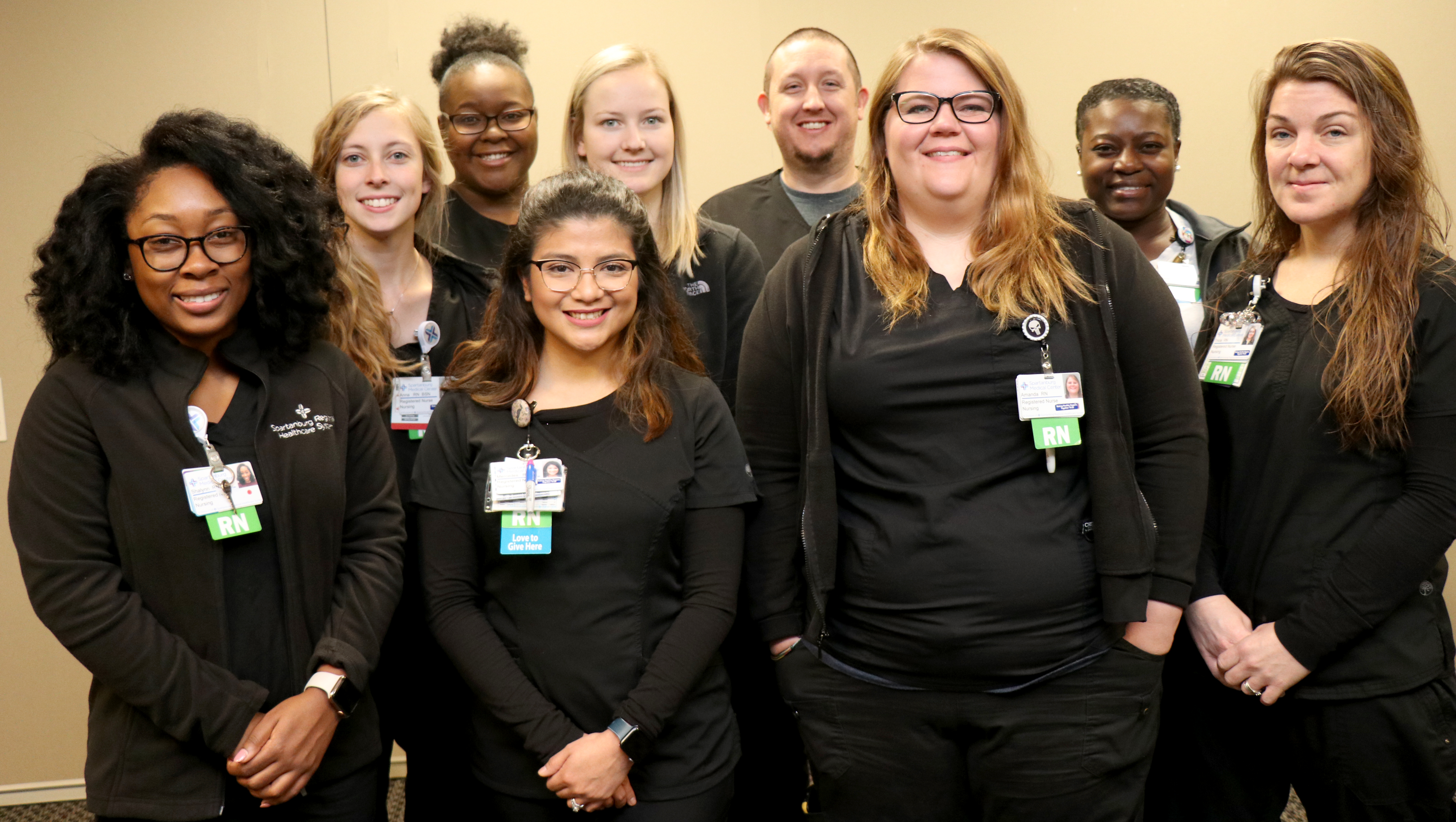
A Solid Foundation for New Nurses
All new graduate nurses and nurses with one year of experience are enrolled in the Transition to Practice Nurse Residency Program. All disciplines will meet for 4 conference-style meetings that focus on professional development. Additionally, new graduates will attend classes tailored to the patient population they care for daily. Transition to Practice Pathways include:
- Women and Children
- Adult Acute Care
- Critical Care
- Emergency/Trauma Care
- Perioperative Care
Ways to Learn and Grow
Your transitional residency education and training includes expert evaluation and guidance along the way. The residency includes all this and more:
- Monthly learning sessions
- Lively group discussions
- Hands-on education and skills-based training
- Patient care population experience
- Develop critical thinking skills
- Leading-edge conferences and professional development
- Strategies for communicating effectively
- Patient safety and quality care training
- Learning about legal
Advancing Your Nursing Career
Our nurse transition-to-practice residency is based on nationally recognized, evidence-based training standards, including Quality and Safety Education for Nurses (QSEN) competencies and Knowledge, Skills and Attitudes (KSA) tools.
At Spartanburg Regional, we encourage your personal and professional advancement throughout your nursing career. As part of our ongoing support for nurses, we offer many career development opportunities, continuing education assistance and competitive salaries and benefits.
Training and Career Pathways
Residency education and training pathways and opportunities include:
![]()
Women and Children
This pathway focuses on women’s health, maternity care, labor and delivery, and care for newborns, mothers, babies and children during important stages of life. Nurses work in a Baby-Friendly® environment that supports breastfeeding and bonding while encouraging informed, family-involved care. Learn alongside obstetricians, neonatologists, pediatricians, nursing colleagues and other specialists. Gain critical care skills in a Level III neonatal intensive care unit (NICU) and advanced pediatric intensive care unit (PICU) for children and adolescents. You’ll focus on fetal monitoring and nursing fundamentals, as well as behavioral health and other areas of interest.
![]()
Adult Acute Care
This pathway enhances nursing capabilities in areas such as neurological and cardiac care, respiratory, renal, gastrointestinal/genitourinary (GI/GU), ortho with enhanced recovery after surgery (ERAS), and oncology care with chemotherapy certification. Learn through classes, simulation and skills labs, and preceptor-guided clinical department experiences.
![]()
Critical Care
Gain experience in intensive care units (ICU) and important fundamentals of nursing care for critically ill patients. You’ll train in specialized areas, such as advanced hemodynamics, cardiac care, renal care – including continuous renal replacement therapy (CRRT) – and other areas of critical care nursing.
![]()
Emergency/Trauma Care
Strengthen critical thinking skills and expertise in challenging emergency, trauma and critical care environments. Learning opportunities include advanced training and experience in an Emergency Center / Level I Trauma Center. Choose from 11 different system-based modules.
![]()
Perioperative Externship
This robust program offers specialty tracks and in-depth training, from preoperative to post-anesthesia care, endoscopy, critical care, sedation, an OR mentorship rotation and a full range of specializations, from cardiovascular to ortho, neurosurgery and others.
Getting Started
To be part of a nurse transition-to-practice pathway at Spartanburg Regional, simply apply for a position in the unit(s) of your interest up to six months before you graduate. You don't need to apply – it’s a rolling program. You’re automatically enrolled and will begin within your first few months of employment. Learn more, including:











